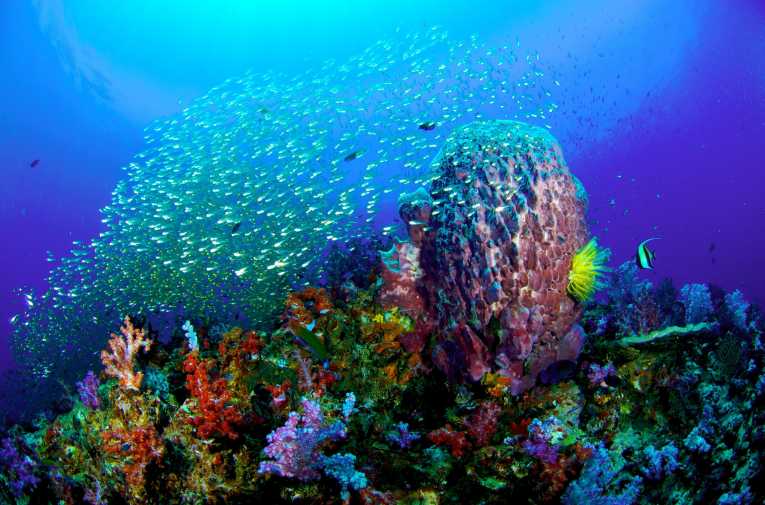As the seas become more acidic through global warming and increased carbon dioxide levels, there's a real possibility that coral reefs and the sea life that relies coral reef habitat could become extinct by the end of the century. That's the findings of a new study from the University of Miami.
The researchers were able to measure the effects of higher acidity levels by looking at damage caused by gases and minerals seeping directly into the ocean from volcanic fissures in the seabed. What they found was if ocean acidification continues to increase through increased CO2 levels, the result could be catastrophic for the ecosystems that rely on the planet's coral reefs.
The researchers examined three volcanic seeps in New Papua Guinea. From their investigations, they were able to get a snapshot of how our coral reefs might look in 100 years. Where CO2 poured into the ocean from the volcanic fissures, PH levels fell, and so did the sea life diversity on the reefs. As acidity levels reached 7.7 from a more normal level of 8.1, reef development ceased altogether.
One of the scientists, Chris Langdon, said: ''These 'champagne reefs' are natural analogs of how coral reefs may look in 100 years if ocean acidification conditions continue to get worse. The reefs are probably the closest we can come to simulating the effect of man-made CO2 emissions on a coral reef. They allow us to see the end result of the complex interactions between species under acidic ocean conditions.''
The dying reefs the scientists studied had healthy reefs nearby that were able to supply larvae to replenish the coral. However, if ocean acidity levels fell to 7.8, there would be no coral left to replenish failing stocks - which would spell disaster for species that depend on coral reef to survive and would also have an impact on the wider food chain.
Globally, between 1751 and 1994, ocean PH levels have fallen from 8.25 to 8.14, as a process known as the carbon cycle transfers CO2 from the atmosphere to the world's seas. As long as atmospheric CO2 continues to increase through the burning of fossil fuels, then there is little that can be done to prevent further acidity levels rising further.










